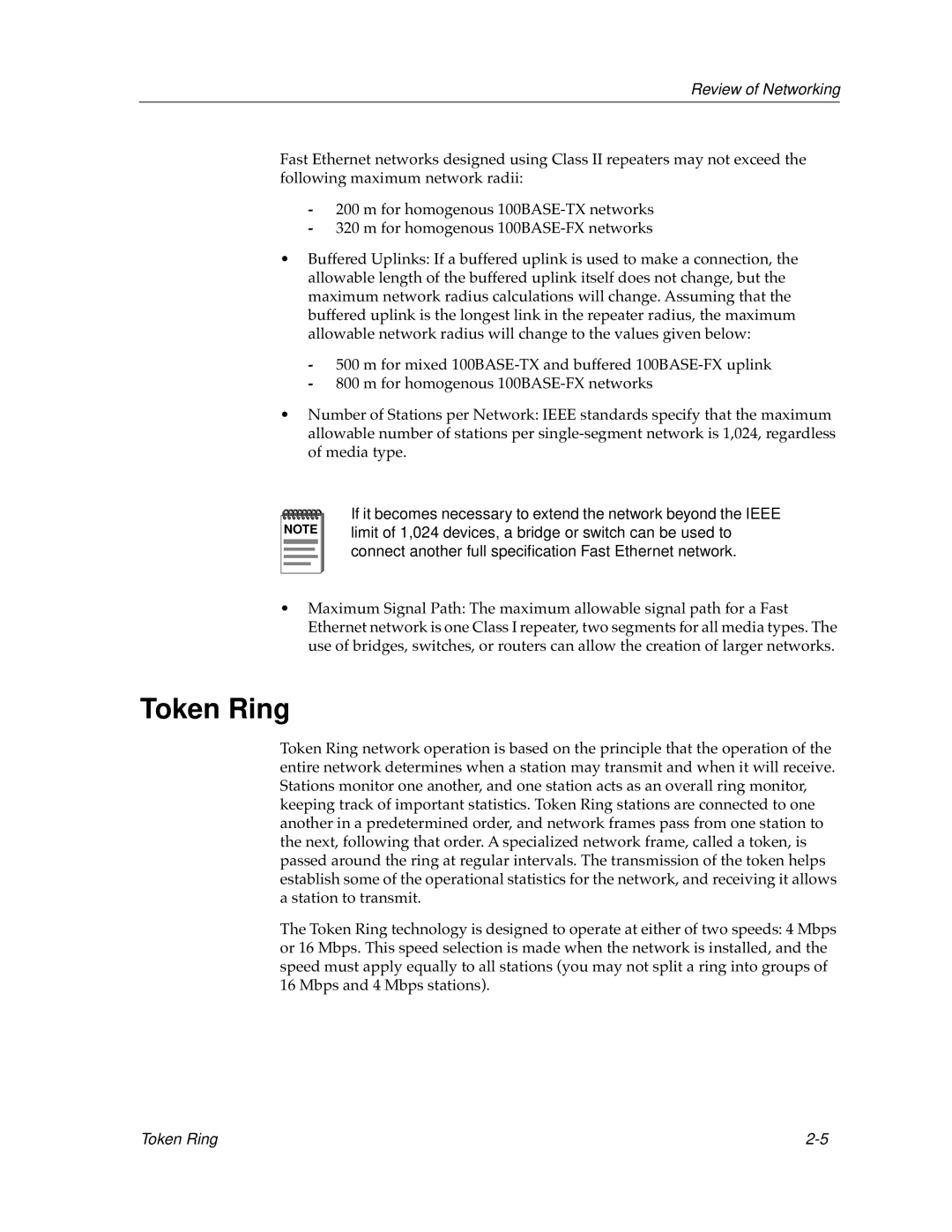
Review of Networking
Fast Ethernet networks designed using Class II repeaters may not exceed the following maximum network radii:
-200 m for homogenous
-320 m for homogenous
•Buffered Uplinks: If a buffered uplink is used to make a connection, the allowable length of the buffered uplink itself does not change, but the maximum network radius calculations will change. Assuming that the buffered uplink is the longest link in the repeater radius, the maximum allowable network radius will change to the values given below:
-500 m for mixed
-800 m for homogenous
•Number of Stations per Network: IEEE standards specify that the maximum allowable number of stations per
NOTE |
If it becomes necessary to extend the network beyond the IEEE limit of 1,024 devices, a bridge or switch can be used to connect another full specification Fast Ethernet network.
•Maximum Signal Path: The maximum allowable signal path for a Fast Ethernet network is one Class I repeater, two segments for all media types. The use of bridges, switches, or routers can allow the creation of larger networks.
Token Ring
Token Ring network operation is based on the principle that the operation of the entire network determines when a station may transmit and when it will receive. Stations monitor one another, and one station acts as an overall ring monitor, keeping track of important statistics. Token Ring stations are connected to one another in a predetermined order, and network frames pass from one station to the next, following that order. A specialized network frame, called a token, is passed around the ring at regular intervals. The transmission of the token helps establish some of the operational statistics for the network, and receiving it allows a station to transmit.
The Token Ring technology is designed to operate at either of two speeds: 4 Mbps or 16 Mbps. This speed selection is made when the network is installed, and the speed must apply equally to all stations (you may not split a ring into groups of 16 Mbps and 4 Mbps stations).
Token Ring |
